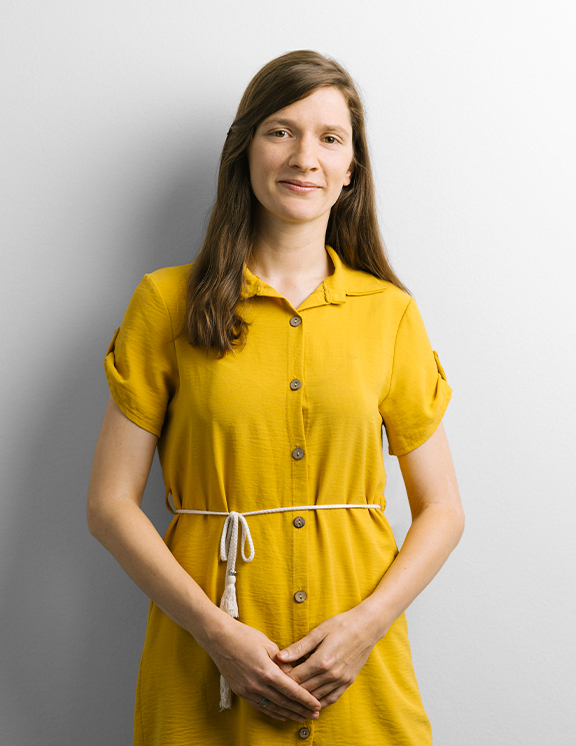
Immigration & Citizenship
Professionals
Professionals
We advise you on all issues relating to residence and work permit law for qualified foreign specialists (graduates of foreign and domestic universities, managing directors and authorized signatories, senior executives, company specialists, secondments, doctors, foreign
scientists and qualified specialists in training occupations such as nurses and geriatric nurses).
For us, the time factor is of central importance. At every stage, we take care to avoid any procedural delays from the very beginning, so that the job in Germany can be taken up as quickly as possible.
And what if your / your employee’s family wants to move to Germany? We also provide support with the reunification of families (reunification of spouses and children).
Sollten Sie bereits eine negative Entscheidung erhalten haben, wissen wir, was zu tun ist. If you have already received a negative decision, we know what to do. We will identify the point at which the procedure failed and roll up the process from the beginning. If necessary, we will also fight for your rights at the competent administrative court.
Our services include in particular:
- Support in the procedure for determining the equivalence of a qualification
(university degree / training) - Carrying out the preliminary examination (Vorabzustimmung) at the Federal Employment Agency (Bundesagentur für Arbeit)
- Comprehensive support in the preparation of the documents to be submitted in
Visa procedure for the purpose of employment - Supervision of visa procedures vis-à-vis the German diplomatic missions abroad and the
foreigners authorities in Germany - Assistance with the submission of applications for residence permits for the purpose of
of employment in Germany - Begleitung zu den Terminen bei der AusländerbehördeAccompaniment to appointments with the immigration office
Lawyers
Team
Frequently Asked Questions about Immigration & Citizenship
An EU Blue Card (residence permit in accordance with Section 18g AufenthG) is issued to a third-country national who holds a German, recognised foreign or a foreign university degree comparable to a German university degree. The Blue Card is issued only for a domestic job appropriate to the qualifications of the applicant. Since 18 November 2023, holders of so-called tertiary educational qualifications (e.g. master craftsmen, graduates of certain technical colleges) can also be issued Blue Cards. IT specialists with at least 3 years of professional experience at university level can now also receive an EU Blue Card without a degree.
Self-employed and freelancers cannot have EU Blue Cards. They are issued specific national residence permits.
- Scientists
- Mathematicians
- Engineers
- Doctors
- IT specialists
- Managers in production in the manufacture of goods, in mining and construction and in logistics
- Managers in the provision of information and communication technology services
- Managers in the provision of specialized services, such as childcare or healthcare
- Veterinarians
- Dentists and dental surgeons
- Pharmacists
- Academic and comparable nursing and midwifery professionals
- Teachers and educators in the school and extracurricular sector
The EU Blue Card is issued for a maximum of four years. If the employment relationship is shorter than four years, the Blue Card will be issued for the duration of the employment contract plus three months. The duration of residence permits for accompanying family members must be adapted to the duration of the EU Blue Card.
Since March 1, 2020, there is no longer a check on skilled workers in Germany to determine whether privileged workers are available on the German labor market. An inspection of the working conditions will be waived if the income requirement of 45.300 EUR (2024) is met. For graduates with job offers in so-called shortage occupations with a yearly gross income between 41.041,80 EUR and 45.300 EUR (2024) an inspection of working conditions, however, will take place.
Since 18 November 2023, the EU Blue Card has only been issued for the first 12 months for a specific job with a specific employer. After that, any employment is permitted.
Since 18 November 2023, EU Blue Card holders who wish to change jobs within the first 12 months no longer have to obtain permission from the immigration authority before starting a new job with a new employer. In return, during the first twelve months since taking up employment with the EU Blue Card, the competent immigration authority must be notified immediately of any change of employer and any change that affects the fulfilment of the conditions for the issue of the EU Blue Card. If this notification is not made, the EU Blue Card and the residence permits of the accompanying family members may be revoked. If the immigration authority becomes aware of the change of employment, it may suspend the change of employment for 30 days within 12 months - starting from the date on which the person commences employment - and reject it within this period if the requirements for the issue of an EU Blue Card are not met.
Yes. Family members may accompany the EU Blue Card holder and will receive residence permits in Germany as well.
Spousal reunification may not be made conditional on integration efforts which may or may not have taken place prior to the arrival. Proof of basic German language skills is not required.
Holders of an EU Blue Card with German language skills at level A1 can obtain an EU Blue Card after 27 months. If they have German language skills at level B1, the settlement permit will be issued after just 21 months.
Holders of other residence permits for the purpose of employment can also receive a settlement permit even if they were not in possession of an EU Blue Card, but otherwise fulfilled the requirements for the issue of an EU Blue Card during their previous period of residence.
Blue Card EU holders may temporarily stay outside Germany for up to twelve months in a row without the residence permit becoming invalid. However, the EU Blue Card expires if the Blue Card holder does leave Germany for non-temporary reasons, for example in case of deregistering the place of residence (Abmeldung) and taking up employment abroad.
Generally a Visa procedure is mandatory before entering the country to start a Blue Card employment. The Visa will be issued by the competent German diplomatic mission. Nationals of Australia, Canada, Israel, Japan, the Republic of Korea, New Zealand or the United States of America may enter Germany without requiring a visa, and must subsequently apply for the EU Blue Card within three months at the competent immigration authority in Germany, and before taking up employment. Also individuals who have held an EU Blue Card in another EU Member State for at least 18 months may enter Germany without requiring a visa and take up employment matching their qualification. Individuals who are already living in Germany and already hold any other residence title may also file their application for the EU Blue Card in Germany.
A distinction must be made between skilled workers with vocational training and skilled workers with academic training.
- Skilled workers with vocational training have a German qualified vocational qualification (lasting at least two years) or a foreign vocational qualification equivalent to a German qualified vocational qualification.
- Skilled workers with academic training have a German, a recognised foreign or a foreign university degree comparable to a German university degree.
The anabin information portal of the Central Office for Foreign Education (https://anabin.kmk.org/anabin.html) can be used to check whether a higher education qualification is recognised in Germany. You must first check whether the university is listed as H+. If the university is listed as H+/-, it must be checked in detail under which conditions a degree obtained at this university can be recognised. The next step is to check whether the specific degree is comparable to a German university degree or is listed accordingly. If both requirements are met, the university degree can be used for a residence permit for skilled workers.
The anabin database is not exhaustive. It lists all higher education qualifications that have already been reviewed as part of a certificate assessment procedure. If your degree is not listed, it is possible to carry out a certificate evaluation procedure. The administrative fee for the procedure is €200.
A skilled worker with vocational training or an academic qualification may be granted a residence permit to pursue qualified employment for which their qualification qualifies them.
Qualified employment is deemed to exist if the skills, knowledge and abilities required to carry out such employment are acquired during a course of study or qualified vocational training. Helper and trainee occupations are excluded. A residence permit for skilled workers can therefore not be issued for a job as a kitchen assistant, for example, as this job does not require skills that are learnt during training or studies.
The course of study or training does not have to be absolutely relevant to the job. It is sufficient if the qualification acquired is at least partially suitable for the job. For example, a confectioner can also be employed as a baker.
It is also possible for academic specialists to work in an occupation for which vocational training is required. For example, an engineer can work as a technician or mechatronics technician.
Yes, the Federal Employment Agency must give its approval. Approval is only not required for the ‘large’ EU Blue Card with a minimum gross salary of €56,400 (from 2023: €58,400).
The Federal Employment Agency checks whether
- the skilled worker is not employed under less favourable working conditions than comparable domestic workers
- whether the employment is qualified and the skilled worker's qualifications qualify them for this
- a domestic employment relationship exists
As part of the immigration of skilled workers, it is no longer checked whether workers with preferential rights are available on the labour market (priority check).
In order to speed up the procedure, it is possible to carry out a preliminary approval procedure with the Federal Employment Agency.
Yes, a residence permit for skilled workers cannot be issued without the submission of a job offer.
However, if you have a recognised education or a recognised university degree, you may be eligible for a residence permit for the purpose of seeking employment.
Yes, persons who have reached the age of 45 must provide proof of an appropriate pension or have a gross monthly salary of at least € 2,877.50 (2022). This can only be waived in justified exceptional cases.
German language skills are generally not required. However, the application must be plausible and, in case of doubt, it must be explained how the skilled worker can successfully carry out the activity without knowledge of German.
If a national visa is first applied for at a German diplomatic mission abroad, this is usually issued for six months. The residence permit in Germany is issued for four years if it is not a temporary employment relationship or the Federal Employment Agency has not given its approval for a shorter period.
German residence law provides for a variety of residence titles for the purpose of employment, regardless of qualification as a skilled worker. For example, a residence permit for employment as an IT employee, company specialist, salaried managing director, executive employee or professional driver can be considered. Nationals of certain countries (Andorra, Australia, Israel, Japan, Canada, Republic of Korea, Monaco, New Zealand, San Marino, Great Britain and Northern Ireland, USA) are also privileged with regard to the possibility of taking up employment independently of a qualification as a skilled worker.
No. In Germany, unlike in some other European countries, there is no residence permit for a mere investment. However, a residence permit for the purpose of self-employment is possible. If you wish to obtain such a residence permit, you will be expected to actively pursue a self-employed activity in Germany and establish your centre of life in Germany.
You can obtain a residence permit for the purpose of self-employment if you set up a company or are otherwise commercially active in Germany. You are also self-employed within the meaning of § 21 Para. 1 AufenthG if you take over the management of the legal representation of a corporation (e.g. the management of a GmbH) and have a stake in the company to such an extent that you can exert a significant influence on the company. For example, as a managing director of a GmbH with your own shareholding of 50% or more, you are always self-employed, even if you are employed by the GmbH. If you are an employee of a GmbH in which you yourself have a shareholding of less than 50%, you are generally eligible for a residence permit for employment subject to social security contributions. It is often not easy to distinguish between self-employment and employment.
You have a good business idea. There must be a public economic interest or a regional need for the realisation of your business idea. Furthermore, your self-employed activity is expected to have a positive impact on the German economy. Finally, your project must be solidly financed by equity capital or a loan.
There is no (longer) a minimum investment sum or a minimum number of jobs to be created. The decisive factors are a good business idea and secure financing. Decisive criteria for the assumption of an economic interest or regional need are
- the viability of your business idea,
- your previous entrepreneurial experience,
- the amount of capital invested,
- the creation of jobs and training places
- the contribution to innovation and research.
The immigration authority responsible for the decision must involve the competent authorities for the location of the planned activity. These are the competent regional trade authorities, the professional organisations under public law, the Chamber of Industry and Commerce and, if necessary, the authorities responsible for professional licensing. These specialised bodies have the economic expertise that the immigration authorities generally do not have themselves.
The basis for the review by the specialised body is a meaningful business plan. A good business plan is the centrepiece of the procedure for applying for a residence permit for the purpose of self-employment. We are happy to help you draw up a professional business plan.
In order to obtain a residence permit for self-employment, you must provide proof of (usually private) health insurance for yourself and all members of your family. If you are older than 45, you must also provide proof of an ‘adequate’ pension scheme.
Citizens of some countries with which Germany has concluded corresponding international treaties are granted residence permits for self-employment under simplified conditions. These include, for example, citizens of Turkey and the United States of America. The same privileges are granted to nationals of so-called best friends countries such as Israel, Great Britain, Canada, Australia and New Zealand). Foreign graduates of German universities and academics/researchers already living in Germany are also given preferential treatment.
If, after holding a residence permit for the purpose of self-employment for three years, you successfully run your business and can finance your livelihood and the livelihood of your family with your business profits, you will receive a permanent residence permit (settlement permit). As a rule, the success of your business will be reviewed again by the competent specialised body.
Yes, family reunification is possible in principle. However, you must be able to provide for your family from your expected income from self-employment and available capital.
If you do not already have a residence permit in Germany or belong to one of the ‘best friends countries’ listed in § 41 Para. 1 AufenthV, you must apply for a national visa at the German diplomatic mission in your home country or in the country of your current permanent residence. This is a complicated and unfortunately often very lengthy procedure. With the competent support of a lawyer, it is often possible to shorten the duration of the procedure considerably.
In Germany, there are a number of activities that are considered "liberal professions". Anyone who becomes self-employed in these areas usually works as a freelancer. These include, for example
activities in the medical profession, for example as a doctor
advisory activities in the fields of law, taxation or economics
scientific and technical activities, for example as an engineer
information-providing or creative activities, such as interpreters
pedagogical activities, for example as an educator.
Legal definitions can be found in the Income Tax Act/ Law and the Partnership Act/Law.
A residence permit for this purpose is required in order to take up freelance work. The Foreigners' Registration Office (Ausländerbehörde) examines the requirements, possibly with the involvement of expert agencies, e.g. the Ministry of Economics or the Senate Department for Economics, the Chamber of Industry and Commerce.
For more than a decade, the Berlin administration has decided that when artists stay in Berlin, it must always be assumed that there is an overriding economic interest in the "art and film capital Berlin", which can be expected to have a positive impact on the economy. This can be visual artists as well as freelance musicians and actors. Due to this administrative practice, a particularly large number of titles are granted in Berlin for the purpose of freelance artistic activity.
In the context of migration law, family reunification means both the procedure for granting a visa for family reunification with a German or foreign (European or third-country national) person from abroad and the granting of a residence permit on the basis of family relationships from within Germany.
Spouses, children (even before they are born), fiancées who wish to enter the country to marry and, in exceptional situations, other family members such as parents are recognised as family relationships within the framework of the right of residence, provided that the family ties are protected by Article 6 of the Basic Law.
A visa for marriage is issued if it can be proven that there are no legal or factual obstacles to the marriage and it is imminent.
In the case of a planned marriage in Germany, this is the case if the procedure initiated at the registry office, with the involvement of the Higher Regional Court or the Berlin Court of Appeal, to check the capacity to marry has been completed or if the registry office has set a date for the marriage.
In order to join third-country nationals, the general requirements set out in Sections 5, 10, 11 and 27 AufenthG must be met, as well as the special requirements set out in Sections 29 ff AufenthG.
The general requirements include, of paramount importance, securing a livelihood in accordance with § 5 Para. 1 No. 1 AufenthG, which must be provided without public funds and must include health insurance. In exceptional cases, this can be waived if there are atypical circumstances that are so significant that they eliminate the otherwise decisive weight of the legal regulation, or the granting of residence must be necessary for reasons of higher-ranking law (Art. 6 GG, Art. 8 ECHR) because it is not possible to establish the family unit in the country of origin.
It should be noted that, for example, child benefit and unemployment benefit I are not included in the harmful public funds, but can be added to the calculation of income to ensure subsistence.
The calculation of needs is based on the provisions of SGB II (sum of the standard needs rates of the members of the community of need plus housing costs and costs for adequate health insurance cover).
This requirement is compared with the available resources, such as income and child benefit, so that the necessary forecast can be made as to whether the means of subsistence will be secured.
The general requirements also include, of central importance, compliance with the visa procedure, § 5 Para. 1 No. 2. This means that the family members must have entered the country with the correct visa (for family reunification).
A general requirement for family reunification of foreigners (and Germans) is also that the intention is to establish a family cohabitation and live together, § 27 AufenthG. This is generally assumed in the case of a domestic partnership, but can also be assumed under certain circumstances if the reason for living separately is work-related, training-related or in a similar context.
If separate households are maintained, the regular contact must go beyond mere visits and reflect the personal and emotional bond. (Distinction between a community of assistance and a mere community of encounters).
The special requirements for family reunification with foreigners are regulated in §§ 29 ff of the Residence Act.
The foreign family member's habitual residence must be in Germany and they must hold a residence permit, settlement permit, EU Blue Card, ICT card or EU permanent residence permit. Family reunification with holders of certain humanitarian residence permits may be excluded or severely restricted (Section 29 (3) AufenthG).
Sufficient living space must be available (§ 29 Para. 1 No. 2 AufenthG) and, in the case of spouse reunification, language skills must generally be at A1 level. The latter does not apply to spouses of highly qualified persons, Blue Card holders, researchers and self-employed persons, as well as in other exceptional circumstances.
In addition to other special requirements, the parent to whom the reunification is to take place must either have sole custody or joint custody of the child. In the case of joint custody, a residence permit should be issued in accordance with § 32 Para. 3 AufenthG if the other parent has given their consent for the child to reside in Germany.
If the child is already 16 years old when the application is submitted, the child's language skills must be at C1 level or other strict requirements must be met. Again, there are exceptions for highly qualified persons and other groups.
For family reunification with German nationals, the general and special requirements (§ 28 AufenthG) of the law must also be met.
In contrast to reunification with foreign nationals, it is not necessary to secure a means of subsistence for reunification with a German spouse or for reunification of a foreign child with a German parent or for reunification of a foreign parent with a German child in order to exercise personal care, but there is a right to the issue of a visa or residence permit - even without a means of subsistence (Section 28 (1) sentence 2 in conjunction with sentence 1 nos. 2 and 3 AufenthG).
The residence permit is to be issued to the foreign spouse of a German (§ 28 Para. 1 No. 1 AufenthG), the minor child of a German (§ 28 Para. 1 No. 2 AufenthG and the parent of a minor unmarried German for the purpose of exercising personal care if the German has his/her habitual residence in Germany.
Family members can join EU citizens (who are entitled to freedom of movement) or enter the country with them, subject to much lighter requirements.
Children up to the age of 21 can enter the country, or even older children if they are granted the necessary maintenance. Children of the EU citizen's spouse can also enter the country under the same conditions. It is also generally permitted for parents to join EU citizens and their spouses as long as their livelihood can be secured.
Nachzuweisen ist lediglich, dass der Unionsbürger freizügigkeitsberechtigt ist, was u.a. dann der Fall ist, wenn der Unionsbürger erwerbstätig ist (§ 2 Abs.2 Nr.1 FreizügG), für sechs Monate, wenn er eine Arbeit sucht, wenn er Unionsbürger zur selbständigen Tätigkeit berechtigt ist, § 2 Abs.2 Nr.2 FreizügG) oder wenn gem. § 2 Abs.2 Nr. 5 iVm § 4 ausreichende Existenzmittel (mindestens Sozialhilfeniveau) zur Verfügung stehen und ausreichender Krankenversicherungsschutz besteht.
Die Einreise ist in einem beschleunigten Verfahren zu ermöglichen, da Familienangehörige bereits freizügigkeitsberechtigt sind, also das Recht auf Einreise schon haben, das nur noch -üblicherweise in Form eines Einreisevisums- dokumentiert, aber nicht erst gewährt werden muss.
Aus diesem Grund können Familienangehörige von Unionsbürgern auch nicht an der Grenze abgewiesen werden, wenn sie ohne Visum einreisen. Sie können auch, wenn sie bereits ins Bundesgebiet eingereist sind, aus dem Inland die Aufenthaltskarte EU beantragen.
The EU permanent residence permit is an unlimited residence title that allows you to settle in another EU country in accordance with the regulations that apply there. The EU permanent residence permit expires if you stay outside Germany for longer than one year. If you are staying in one of the signatory states of the EU Permanent Residence Directive, your German EU permanent residence permit may not expire for up to 6 years.
The settlement permit also allows you to stay in Germany indefinitely. However, this permit does not give you the right to stay in another EU member state for more than 90 days.
In addition, you cannot stay outside Germany for longer than 6 months without your settlement permit expiring.
This also applies to recognised asylum seekers and persons who have been granted refugee status. However, they have their own basis for entitlement after 3 or 5 years of prior residence.
You will receive a German permit for permanent residence in the EU if you have held a residence permit for at least five years, can support yourself and your family members through regular income, have sufficient funds for old-age provision and knowledge of the German language and are integrated in Germany. It is sufficient if one of the married couple can provide evidence of their pension provision.
To obtain this title, you must also have held a residence permit for at least five years, have contributed to a pension insurance scheme for at least 60 months, be able to earn a living and be well integrated. In the case of married couples, it is sufficient if one partner has made pension insurance contributions and is authorised to work. In contrast to the EU permanent residence permit, it is not possible to provide proof of pension provision through savings and assets.
In addition to Section 9 AufenthG, there are other bases for entitlement to a settlement permit in the Residence Act.
Examples are
Skilled workers after 3 years
- Graduates of a course of study or vocational training in Germany after 2 years
- EU Blue Card holders after 33 months or 21 months
- Self-employed persons after 3 years
- Family members of a German person after 3 years
- Spouses of foreign skilled workers with a settlement permit after 3 years if they have at least a part-time job
German citizenship can essentially be acquired
- by birth
- by naturalisation and
- through acquisition by declaration
A child acquires German citizenship if it is descended from a German citizen, is recognised as a child or a court establishes the paternity of a German citizen.
In addition, a minor child acquires German citizenship if it is adopted by a German parent.
Yes, a child of two non-German nationals acquires German citizenship under birthright citizenship if one parent has been legally resident in Germany for at least five years at the time of birth and has a permanent right of residence (e.g. settlement permit, permanent EU residence) in Germany. The same applies if one parent has been an EU citizen entitled to freedom of movement or a national of an equivalent EEA state or Swiss national for 8 years.
In these cases, a newborn child automatically acquires German citizenship at birth in addition to the nationality of its parents, without having to submit an additional application. The existence of the requirements is checked by the registry office when the birth certificate is issued, using the parents' foreigner files.
What often remains unrecognised: Children of Turkish nationals who have been gainfully employed in Germany for many years may be German even if their parents do not (yet) have a settlement permit.
If a child is born in Germany with more than one nationality, he or she no longer has to choose between two or more nationalities.
You are entitled to naturalisation if you are a foreigner who
- have lived legally in Germany for an uninterrupted period of 5 years and have German language skills at level B1 or
- have lived in Germany for 3 years and have German language skills of at least level C1 and can provide evidence of special integration achievements, in particular particularly good academic, vocational or professional achievements or civic engagement.
- has been living in Germany for 3 years and has been married to a German or a German national for at least two years and continues to live with them in a marital partnership. In this case, German language skills at level B1 are sufficient. Shorter deadlines may apply for the simultaneous naturalisation of spouses and children. At the discretion of the authorities, naturalisation can also be granted after three years of legal residence in Germany if there is a public interest.
- has a settlement permit or, as a Swiss national or family member, a residence permit based on the Agreement of 21 June 1999 between the European Community and its Member States, of the one part, and the Swiss Confederation, of the other, on the free movement of persons, an EU Blue Card or a residence permit for purposes other than those specified in Sections 16a, 16b, 16d, 16e, 16f, 17, 18f, 19, 19b, 19e, 20, 22, 23a, 24 and 25 (3-5) and Section 104c AufenthG.
- has a regular income from employment or self-employment,
does not receive unemployment benefit II or social assistance and family members do not receive benefits from the JobCentre or social welfare office,
has no criminal record, i.e. has not been sentenced to fines totalling more than 90 daily rates or suspended prison sentences of more than 3 months, and - has passed a naturalisation test or has a German school or university degree.
Since the new Citizenship Act came into force on 27 June 2024, dual or multiple citizenship has been accepted without restriction in Germany. The previous nationality no longer has to be renounced if the nationality law of the country of origin also permits multiple nationality.
Since 20 August 2021 and until 19 August 2031, numerous people and their descendants who did not acquire German citizenship by birth in the past due to gender-discriminatory provisions in German citizenship law or who have subsequently lost their German citizenship acquired by birth can (re)acquire German citizenship under simplified conditions by simply submitting a declaration. In this case, German citizenship is acquired with the acceptance of multiple nationalities and without proof of knowledge of German or other ties to Germany.
- You were born after the Basic Law came into force on 23 May 1949.
- You are affected by a gender-discriminatory provision. This is the case if:
you are the child of a German mother or a German father and did not acquire German citizenship from him/her or - you are the child of a mother who lost her German nationality before your birth through marriage to a non-German spouse or
- you acquired German citizenship by birth but later lost it again by legitimisation because your German mother married your non-German father after your birth.
- You have not been convicted of any criminal offences in Germany or abroad.
There is no case of § 4 para. 4 StAG.
The German passport can be lost, for example, if a person joins the armed forces of another country. This also applies to Germans who actually take part in combat operations of a terrorist organisation abroad if they do not become stateless as a result of losing their German citizenship. Under certain circumstances, it is also possible to renounce German citizenship.
If you wish to participate in the upcoming elections, here is some general information on the process:
All German citizens who are registered in their electoral district 42 days before the election are automatically added to the electoral roll. If you received German citizenship before the 12th of January, you should have been added to the electoral roll of your district automatically and receive an election notice (with details of where you are registered to pick up your ballot and vote on the 23rd). In Berlin, the electoral roll will be updated even after that, so that your name should be on the roll even after that deadline and you might have received an election notice.
However, if your naturalization is very close to election day, you can make sure you are on the electoral roll by calling your local electoral office (“Wahlamt” in your local citizen office) and ask for confirmation. If you are on the electoral roll, you will be able to vote at your polling station. You can vote even if you have not received your German passport, yet, by showing another piece of official identification (foreign passport, driver’s license…).
Please, find below the link to the citizen offices in Berlin and general information about the election procedure by the Federal Chief Electoral Officer:

Immigration & Citizenship
Professionals
Professionals
We provide legal advice on all questions of residence and work permit law for qualified foreign professionals (graduates of foreign and domestic universities, managing directors and procurators, senior executives, company specialists, secondments, doctors, foreign scientists and qualified professionals in training professions such as nurses and geriatric nurses).
For us, the time factor is of central importance. At every stage, we take care to avoid any procedural delays from the very beginning, so that the job in Germany can be taken up as quickly as possible.
And what if your / your employee’s family wants to move to Germany? We also provide support with the reunification of families (reunification of spouses and children).
Sollten Sie bereits eine negative Entscheidung erhalten haben, wissen wir, was zu tun ist. If you have already received a negative decision, we know what to do. We will identify the point at which the procedure failed and roll up the process from the beginning. If necessary, we will also fight for your rights at the competent administrative court.
Our services include in particular:
- Support in the procedure to determine the equivalence of a qualification (university degree / vocational training)
- Carrying out the preliminary examination (Vorabzustimmung) at the Federal Employment Agency (Bundesagentur für Arbeit)
- Comprehensive support in preparing the documents to be submitted in visa procedures for the purpose of employment
- Supervision of visa procedures with the German missions abroad and the immigration offices to be involved in Germany
- Support in submitting applications for residence permits for the purpose of employment in Germany
- Begleitung zu den Terminen bei der AusländerbehördeAccompaniment to appointments with the immigration office
Lawyers
Team
Frequently Asked Questions about Immigration & Citizenship
An EU Blue Card (residence permit in accordance with Section 18g AufenthG) is issued to a third-country national who holds a German, recognised foreign or a foreign university degree comparable to a German university degree. The Blue Card is issued only for a domestic job appropriate to the qualifications of the applicant. Since 18 November 2023, holders of so-called tertiary educational qualifications (e.g. master craftsmen, graduates of certain technical colleges) can also be issued Blue Cards. IT specialists with at least 3 years of professional experience at university level can now also receive an EU Blue Card without a degree.
Self-employed and freelancers cannot have EU Blue Cards. They are issued specific national residence permits.
- Scientists
- Mathematicians
- Engineers
- Doctors
- IT specialists
- Managers in production in the manufacture of goods, in mining and construction and in logistics
- Managers in the provision of information and communication technology services
- Managers in the provision of specialized services, such as childcare or healthcare
- Veterinarians
- Dentists and dental surgeons
- Pharmacists
- Academic and comparable nursing and midwifery professionals
- Teachers and educators in the school and extracurricular sector
The EU Blue Card is issued for a maximum of four years. If the employment relationship is shorter than four years, the Blue Card will be issued for the duration of the employment contract plus three months. The duration of residence permits for accompanying family members must be adapted to the duration of the EU Blue Card.
Since March 1, 2020, there is no longer a check on skilled workers in Germany to determine whether privileged workers are available on the German labor market. An inspection of the working conditions will be waived if the income requirement of 45.300 EUR (2024) is met. For graduates with job offers in so-called shortage occupations with a yearly gross income between 41.041,80 EUR and 45.300 EUR (2024) an inspection of working conditions, however, will take place.
Since 18 November 2023, the EU Blue Card has only been issued for the first 12 months for a specific job with a specific employer. After that, any employment is permitted.
Since 18 November 2023, EU Blue Card holders who wish to change jobs within the first 12 months no longer have to obtain permission from the immigration authority before starting a new job with a new employer. In return, during the first twelve months since taking up employment with the EU Blue Card, the competent immigration authority must be notified immediately of any change of employer and any change that affects the fulfilment of the conditions for the issue of the EU Blue Card. If this notification is not made, the EU Blue Card and the residence permits of the accompanying family members may be revoked. If the immigration authority becomes aware of the change of employment, it may suspend the change of employment for 30 days within 12 months - starting from the date on which the person commences employment - and reject it within this period if the requirements for the issue of an EU Blue Card are not met.
Yes. Family members may accompany the EU Blue Card holder and will receive residence permits in Germany as well.
Spousal reunification may not be made conditional on integration efforts which may or may not have taken place prior to the arrival. Proof of basic German language skills is not required.
Holders of an EU Blue Card with German language skills at level A1 can obtain an EU Blue Card after 27 months. If they have German language skills at level B1, the settlement permit will be issued after just 21 months.
Holders of other residence permits for the purpose of employment can also receive a settlement permit even if they were not in possession of an EU Blue Card, but otherwise fulfilled the requirements for the issue of an EU Blue Card during their previous period of residence.
Blue Card EU holders may temporarily stay outside Germany for up to twelve months in a row without the residence permit becoming invalid. However, the EU Blue Card expires if the Blue Card holder does leave Germany for non-temporary reasons, for example in case of deregistering the place of residence (Abmeldung) and taking up employment abroad.
Generally a Visa procedure is mandatory before entering the country to start a Blue Card employment. The Visa will be issued by the competent German diplomatic mission. Nationals of Australia, Canada, Israel, Japan, the Republic of Korea, New Zealand or the United States of America may enter Germany without requiring a visa, and must subsequently apply for the EU Blue Card within three months at the competent immigration authority in Germany, and before taking up employment. Also individuals who have held an EU Blue Card in another EU Member State for at least 18 months may enter Germany without requiring a visa and take up employment matching their qualification. Individuals who are already living in Germany and already hold any other residence title may also file their application for the EU Blue Card in Germany.
A distinction must be made between skilled workers with vocational training and skilled workers with academic training.
- Skilled workers with vocational training have a German qualified vocational qualification (lasting at least two years) or a foreign vocational qualification equivalent to a German qualified vocational qualification.
- Skilled workers with academic training have a German, a recognised foreign or a foreign university degree comparable to a German university degree.
The anabin information portal of the Central Office for Foreign Education (https://anabin.kmk.org/anabin.html) can be used to check whether a higher education qualification is recognised in Germany. You must first check whether the university is listed as H+. If the university is listed as H+/-, it must be checked in detail under which conditions a degree obtained at this university can be recognised. The next step is to check whether the specific degree is comparable to a German university degree or is listed accordingly. If both requirements are met, the university degree can be used for a residence permit for skilled workers.
The anabin database is not exhaustive. It lists all higher education qualifications that have already been reviewed as part of a certificate assessment procedure. If your degree is not listed, it is possible to carry out a certificate evaluation procedure. The administrative fee for the procedure is €200.
A skilled worker with vocational training or an academic qualification may be granted a residence permit to pursue qualified employment for which their qualification qualifies them.
Qualified employment is deemed to exist if the skills, knowledge and abilities required to carry out such employment are acquired during a course of study or qualified vocational training. Helper and trainee occupations are excluded. A residence permit for skilled workers can therefore not be issued for a job as a kitchen assistant, for example, as this job does not require skills that are learnt during training or studies.
The course of study or training does not have to be absolutely relevant to the job. It is sufficient if the qualification acquired is at least partially suitable for the job. For example, a confectioner can also be employed as a baker.
It is also possible for academic specialists to work in an occupation for which vocational training is required. For example, an engineer can work as a technician or mechatronics technician.
Yes, the Federal Employment Agency must give its approval. Approval is only not required for the ‘large’ EU Blue Card with a minimum gross salary of €56,400 (from 2023: €58,400).
The Federal Employment Agency checks whether
- the skilled worker is not employed under less favourable working conditions than comparable domestic workers
- whether the employment is qualified and the skilled worker's qualifications qualify them for this
- a domestic employment relationship exists
As part of the immigration of skilled workers, it is no longer checked whether workers with preferential rights are available on the labour market (priority check).
In order to speed up the procedure, it is possible to carry out a preliminary approval procedure with the Federal Employment Agency.
Yes, a residence permit for skilled workers cannot be issued without the submission of a job offer.
However, if you have a recognised education or a recognised university degree, you may be eligible for a residence permit for the purpose of seeking employment.
Yes, persons who have reached the age of 45 must provide proof of an appropriate pension or have a gross monthly salary of at least € 2,877.50 (2022). This can only be waived in justified exceptional cases.
German language skills are generally not required. However, the application must be plausible and, in case of doubt, it must be explained how the skilled worker can successfully carry out the activity without knowledge of German.
If a national visa is first applied for at a German diplomatic mission abroad, this is usually issued for six months. The residence permit in Germany is issued for four years if it is not a temporary employment relationship or the Federal Employment Agency has not given its approval for a shorter period.
German residence law provides for a variety of residence titles for the purpose of employment, regardless of qualification as a skilled worker. For example, a residence permit for employment as an IT employee, company specialist, salaried managing director, executive employee or professional driver can be considered. Nationals of certain countries (Andorra, Australia, Israel, Japan, Canada, Republic of Korea, Monaco, New Zealand, San Marino, Great Britain and Northern Ireland, USA) are also privileged with regard to the possibility of taking up employment independently of a qualification as a skilled worker.
No. In Germany, unlike in some other European countries, there is no residence permit for a mere investment. However, a residence permit for the purpose of self-employment is possible. If you wish to obtain such a residence permit, you will be expected to actively pursue a self-employed activity in Germany and establish your centre of life in Germany.
You can obtain a residence permit for the purpose of self-employment if you set up a company or are otherwise commercially active in Germany. You are also self-employed within the meaning of § 21 Para. 1 AufenthG if you take over the management of the legal representation of a corporation (e.g. the management of a GmbH) and have a stake in the company to such an extent that you can exert a significant influence on the company. For example, as a managing director of a GmbH with your own shareholding of 50% or more, you are always self-employed, even if you are employed by the GmbH. If you are an employee of a GmbH in which you yourself have a shareholding of less than 50%, you are generally eligible for a residence permit for employment subject to social security contributions. It is often not easy to distinguish between self-employment and employment.
You have a good business idea. There must be a public economic interest or a regional need for the realisation of your business idea. Furthermore, your self-employed activity is expected to have a positive impact on the German economy. Finally, your project must be solidly financed by equity capital or a loan.
There is no (longer) a minimum investment sum or a minimum number of jobs to be created. The decisive factors are a good business idea and secure financing. Decisive criteria for the assumption of an economic interest or regional need are
- the viability of your business idea,
- your previous entrepreneurial experience,
- the amount of capital invested,
- the creation of jobs and training places
- the contribution to innovation and research.
The immigration authority responsible for the decision must involve the competent authorities for the location of the planned activity. These are the competent regional trade authorities, the professional organisations under public law, the Chamber of Industry and Commerce and, if necessary, the authorities responsible for professional licensing. These specialised bodies have the economic expertise that the immigration authorities generally do not have themselves.
The basis for the review by the specialised body is a meaningful business plan. A good business plan is the centrepiece of the procedure for applying for a residence permit for the purpose of self-employment. We are happy to help you draw up a professional business plan.
In order to obtain a residence permit for self-employment, you must provide proof of (usually private) health insurance for yourself and all members of your family. If you are older than 45, you must also provide proof of an ‘adequate’ pension scheme.
Citizens of some countries with which Germany has concluded corresponding international treaties are granted residence permits for self-employment under simplified conditions. These include, for example, citizens of Turkey and the United States of America. The same privileges are granted to nationals of so-called best friends countries such as Israel, Great Britain, Canada, Australia and New Zealand). Foreign graduates of German universities and academics/researchers already living in Germany are also given preferential treatment.
If, after holding a residence permit for the purpose of self-employment for three years, you successfully run your business and can finance your livelihood and the livelihood of your family with your business profits, you will receive a permanent residence permit (settlement permit). As a rule, the success of your business will be reviewed again by the competent specialised body.
Yes, family reunification is possible in principle. However, you must be able to provide for your family from your expected income from self-employment and available capital.
If you do not already have a residence permit in Germany or belong to one of the ‘best friends countries’ listed in § 41 Para. 1 AufenthV, you must apply for a national visa at the German diplomatic mission in your home country or in the country of your current permanent residence. This is a complicated and unfortunately often very lengthy procedure. With the competent support of a lawyer, it is often possible to shorten the duration of the procedure considerably.
In Germany, there are a number of activities that are considered "liberal professions". Anyone who becomes self-employed in these areas usually works as a freelancer. These include, for example
activities in the medical profession, for example as a doctor
advisory activities in the fields of law, taxation or economics
scientific and technical activities, for example as an engineer
information-providing or creative activities, such as interpreters
pedagogical activities, for example as an educator.
Legal definitions can be found in the Income Tax Act/ Law and the Partnership Act/Law.
A residence permit for this purpose is required in order to take up freelance work. The Foreigners' Registration Office (Ausländerbehörde) examines the requirements, possibly with the involvement of expert agencies, e.g. the Ministry of Economics or the Senate Department for Economics, the Chamber of Industry and Commerce.
For more than a decade, the Berlin administration has decided that when artists stay in Berlin, it must always be assumed that there is an overriding economic interest in the "art and film capital Berlin", which can be expected to have a positive impact on the economy. This can be visual artists as well as freelance musicians and actors. Due to this administrative practice, a particularly large number of titles are granted in Berlin for the purpose of freelance artistic activity.
In the context of migration law, family reunification means both the procedure for granting a visa for family reunification with a German or foreign (European or third-country national) person from abroad and the granting of a residence permit on the basis of family relationships from within Germany.
Spouses, children (even before they are born), fiancées who wish to enter the country to marry and, in exceptional situations, other family members such as parents are recognised as family relationships within the framework of the right of residence, provided that the family ties are protected by Article 6 of the Basic Law.
A visa for marriage is issued if it can be proven that there are no legal or factual obstacles to the marriage and it is imminent.
In the case of a planned marriage in Germany, this is the case if the procedure initiated at the registry office, with the involvement of the Higher Regional Court or the Berlin Court of Appeal, to check the capacity to marry has been completed or if the registry office has set a date for the marriage.
In order to join third-country nationals, the general requirements set out in Sections 5, 10, 11 and 27 AufenthG must be met, as well as the special requirements set out in Sections 29 ff AufenthG.
The general requirements include, of paramount importance, securing a livelihood in accordance with § 5 Para. 1 No. 1 AufenthG, which must be provided without public funds and must include health insurance. In exceptional cases, this can be waived if there are atypical circumstances that are so significant that they eliminate the otherwise decisive weight of the legal regulation, or the granting of residence must be necessary for reasons of higher-ranking law (Art. 6 GG, Art. 8 ECHR) because it is not possible to establish the family unit in the country of origin.
It should be noted that, for example, child benefit and unemployment benefit I are not included in the harmful public funds, but can be added to the calculation of income to ensure subsistence.
The calculation of needs is based on the provisions of SGB II (sum of the standard needs rates of the members of the community of need plus housing costs and costs for adequate health insurance cover).
This requirement is compared with the available resources, such as income and child benefit, so that the necessary forecast can be made as to whether the means of subsistence will be secured.
The general requirements also include, of central importance, compliance with the visa procedure, § 5 Para. 1 No. 2. This means that the family members must have entered the country with the correct visa (for family reunification).
A general requirement for family reunification of foreigners (and Germans) is also that the intention is to establish a family cohabitation and live together, § 27 AufenthG. This is generally assumed in the case of a domestic partnership, but can also be assumed under certain circumstances if the reason for living separately is work-related, training-related or in a similar context.
If separate households are maintained, the regular contact must go beyond mere visits and reflect the personal and emotional bond. (Distinction between a community of assistance and a mere community of encounters).
The special requirements for family reunification with foreigners are regulated in §§ 29 ff of the Residence Act.
The foreign family member's habitual residence must be in Germany and they must hold a residence permit, settlement permit, EU Blue Card, ICT card or EU permanent residence permit. Family reunification with holders of certain humanitarian residence permits may be excluded or severely restricted (Section 29 (3) AufenthG).
Sufficient living space must be available (§ 29 Para. 1 No. 2 AufenthG) and, in the case of spouse reunification, language skills must generally be at A1 level. The latter does not apply to spouses of highly qualified persons, Blue Card holders, researchers and self-employed persons, as well as in other exceptional circumstances.
In addition to other special requirements, the parent to whom the reunification is to take place must either have sole custody or joint custody of the child. In the case of joint custody, a residence permit should be issued in accordance with § 32 Para. 3 AufenthG if the other parent has given their consent for the child to reside in Germany.
If the child is already 16 years old when the application is submitted, the child's language skills must be at C1 level or other strict requirements must be met. Again, there are exceptions for highly qualified persons and other groups.
For family reunification with German nationals, the general and special requirements (§ 28 AufenthG) of the law must also be met.
In contrast to reunification with foreign nationals, it is not necessary to secure a means of subsistence for reunification with a German spouse or for reunification of a foreign child with a German parent or for reunification of a foreign parent with a German child in order to exercise personal care, but there is a right to the issue of a visa or residence permit - even without a means of subsistence (Section 28 (1) sentence 2 in conjunction with sentence 1 nos. 2 and 3 AufenthG).
The residence permit is to be issued to the foreign spouse of a German (§ 28 Para. 1 No. 1 AufenthG), the minor child of a German (§ 28 Para. 1 No. 2 AufenthG and the parent of a minor unmarried German for the purpose of exercising personal care if the German has his/her habitual residence in Germany.
Family members can join EU citizens (who are entitled to freedom of movement) or enter the country with them, subject to much lighter requirements.
Children up to the age of 21 can enter the country, or even older children if they are granted the necessary maintenance. Children of the EU citizen's spouse can also enter the country under the same conditions. It is also generally permitted for parents to join EU citizens and their spouses as long as their livelihood can be secured.
Nachzuweisen ist lediglich, dass der Unionsbürger freizügigkeitsberechtigt ist, was u.a. dann der Fall ist, wenn der Unionsbürger erwerbstätig ist (§ 2 Abs.2 Nr.1 FreizügG), für sechs Monate, wenn er eine Arbeit sucht, wenn er Unionsbürger zur selbständigen Tätigkeit berechtigt ist, § 2 Abs.2 Nr.2 FreizügG) oder wenn gem. § 2 Abs.2 Nr. 5 iVm § 4 ausreichende Existenzmittel (mindestens Sozialhilfeniveau) zur Verfügung stehen und ausreichender Krankenversicherungsschutz besteht.
Die Einreise ist in einem beschleunigten Verfahren zu ermöglichen, da Familienangehörige bereits freizügigkeitsberechtigt sind, also das Recht auf Einreise schon haben, das nur noch -üblicherweise in Form eines Einreisevisums- dokumentiert, aber nicht erst gewährt werden muss.
Aus diesem Grund können Familienangehörige von Unionsbürgern auch nicht an der Grenze abgewiesen werden, wenn sie ohne Visum einreisen. Sie können auch, wenn sie bereits ins Bundesgebiet eingereist sind, aus dem Inland die Aufenthaltskarte EU beantragen.
The EU permanent residence permit is an unlimited residence title that allows you to settle in another EU country in accordance with the regulations that apply there. The EU permanent residence permit expires if you stay outside Germany for longer than one year. If you are staying in one of the signatory states of the EU Permanent Residence Directive, your German EU permanent residence permit may not expire for up to 6 years.
The settlement permit also allows you to stay in Germany indefinitely. However, this permit does not give you the right to stay in another EU member state for more than 90 days.
In addition, you cannot stay outside Germany for longer than 6 months without your settlement permit expiring.
This also applies to recognised asylum seekers and persons who have been granted refugee status. However, they have their own basis for entitlement after 3 or 5 years of prior residence.
You will receive a German permit for permanent residence in the EU if you have held a residence permit for at least five years, can support yourself and your family members through regular income, have sufficient funds for old-age provision and knowledge of the German language and are integrated in Germany. It is sufficient if one of the married couple can provide evidence of their pension provision.
To obtain this title, you must also have held a residence permit for at least five years, have contributed to a pension insurance scheme for at least 60 months, be able to earn a living and be well integrated. In the case of married couples, it is sufficient if one partner has made pension insurance contributions and is authorised to work. In contrast to the EU permanent residence permit, it is not possible to provide proof of pension provision through savings and assets.
In addition to Section 9 AufenthG, there are other bases for entitlement to a settlement permit in the Residence Act.
Examples are
Skilled workers after 3 years
- Graduates of a course of study or vocational training in Germany after 2 years
- EU Blue Card holders after 33 months or 21 months
- Self-employed persons after 3 years
- Family members of a German person after 3 years
- Spouses of foreign skilled workers with a settlement permit after 3 years if they have at least a part-time job
German citizenship can essentially be acquired
- by birth
- by naturalisation and
- through acquisition by declaration
A child acquires German citizenship if it is descended from a German citizen, is recognised as a child or a court establishes the paternity of a German citizen.
In addition, a minor child acquires German citizenship if it is adopted by a German parent.
Yes, a child of two non-German nationals acquires German citizenship under birthright citizenship if one parent has been legally resident in Germany for at least five years at the time of birth and has a permanent right of residence (e.g. settlement permit, permanent EU residence) in Germany. The same applies if one parent has been an EU citizen entitled to freedom of movement or a national of an equivalent EEA state or Swiss national for 8 years.
In these cases, a newborn child automatically acquires German citizenship at birth in addition to the nationality of its parents, without having to submit an additional application. The existence of the requirements is checked by the registry office when the birth certificate is issued, using the parents' foreigner files.
What often remains unrecognised: Children of Turkish nationals who have been gainfully employed in Germany for many years may be German even if their parents do not (yet) have a settlement permit.
If a child is born in Germany with more than one nationality, he or she no longer has to choose between two or more nationalities.
You are entitled to naturalisation if you are a foreigner who
- have lived legally in Germany for an uninterrupted period of 5 years and have German language skills at level B1 or
- have lived in Germany for 3 years and have German language skills of at least level C1 and can provide evidence of special integration achievements, in particular particularly good academic, vocational or professional achievements or civic engagement.
- has been living in Germany for 3 years and has been married to a German or a German national for at least two years and continues to live with them in a marital partnership. In this case, German language skills at level B1 are sufficient. Shorter deadlines may apply for the simultaneous naturalisation of spouses and children. At the discretion of the authorities, naturalisation can also be granted after three years of legal residence in Germany if there is a public interest.
- has a settlement permit or, as a Swiss national or family member, a residence permit based on the Agreement of 21 June 1999 between the European Community and its Member States, of the one part, and the Swiss Confederation, of the other, on the free movement of persons, an EU Blue Card or a residence permit for purposes other than those specified in Sections 16a, 16b, 16d, 16e, 16f, 17, 18f, 19, 19b, 19e, 20, 22, 23a, 24 and 25 (3-5) and Section 104c AufenthG.
- has a regular income from employment or self-employment,
does not receive unemployment benefit II or social assistance and family members do not receive benefits from the JobCentre or social welfare office,
has no criminal record, i.e. has not been sentenced to fines totalling more than 90 daily rates or suspended prison sentences of more than 3 months, and - has passed a naturalisation test or has a German school or university degree.
Since the new Citizenship Act came into force on 27 June 2024, dual or multiple citizenship has been accepted without restriction in Germany. The previous nationality no longer has to be renounced if the nationality law of the country of origin also permits multiple nationality.
Since 20 August 2021 and until 19 August 2031, numerous people and their descendants who did not acquire German citizenship by birth in the past due to gender-discriminatory provisions in German citizenship law or who have subsequently lost their German citizenship acquired by birth can (re)acquire German citizenship under simplified conditions by simply submitting a declaration. In this case, German citizenship is acquired with the acceptance of multiple nationalities and without proof of knowledge of German or other ties to Germany.
- You were born after the Basic Law came into force on 23 May 1949.
- You are affected by a gender-discriminatory provision. This is the case if:
you are the child of a German mother or a German father and did not acquire German citizenship from him/her or - you are the child of a mother who lost her German nationality before your birth through marriage to a non-German spouse or
- you acquired German citizenship by birth but later lost it again by legitimisation because your German mother married your non-German father after your birth.
- You have not been convicted of any criminal offences in Germany or abroad.
There is no case of § 4 para. 4 StAG.
The German passport can be lost, for example, if a person joins the armed forces of another country. This also applies to Germans who actually take part in combat operations of a terrorist organisation abroad if they do not become stateless as a result of losing their German citizenship. Under certain circumstances, it is also possible to renounce German citizenship.
If you wish to participate in the upcoming elections, here is some general information on the process:
All German citizens who are registered in their electoral district 42 days before the election are automatically added to the electoral roll. If you received German citizenship before the 12th of January, you should have been added to the electoral roll of your district automatically and receive an election notice (with details of where you are registered to pick up your ballot and vote on the 23rd). In Berlin, the electoral roll will be updated even after that, so that your name should be on the roll even after that deadline and you might have received an election notice.
However, if your naturalization is very close to election day, you can make sure you are on the electoral roll by calling your local electoral office (“Wahlamt” in your local citizen office) and ask for confirmation. If you are on the electoral roll, you will be able to vote at your polling station. You can vote even if you have not received your German passport, yet, by showing another piece of official identification (foreign passport, driver’s license…).
Please, find below the link to the citizen offices in Berlin and general information about the election procedure by the Federal Chief Electoral Officer:

















